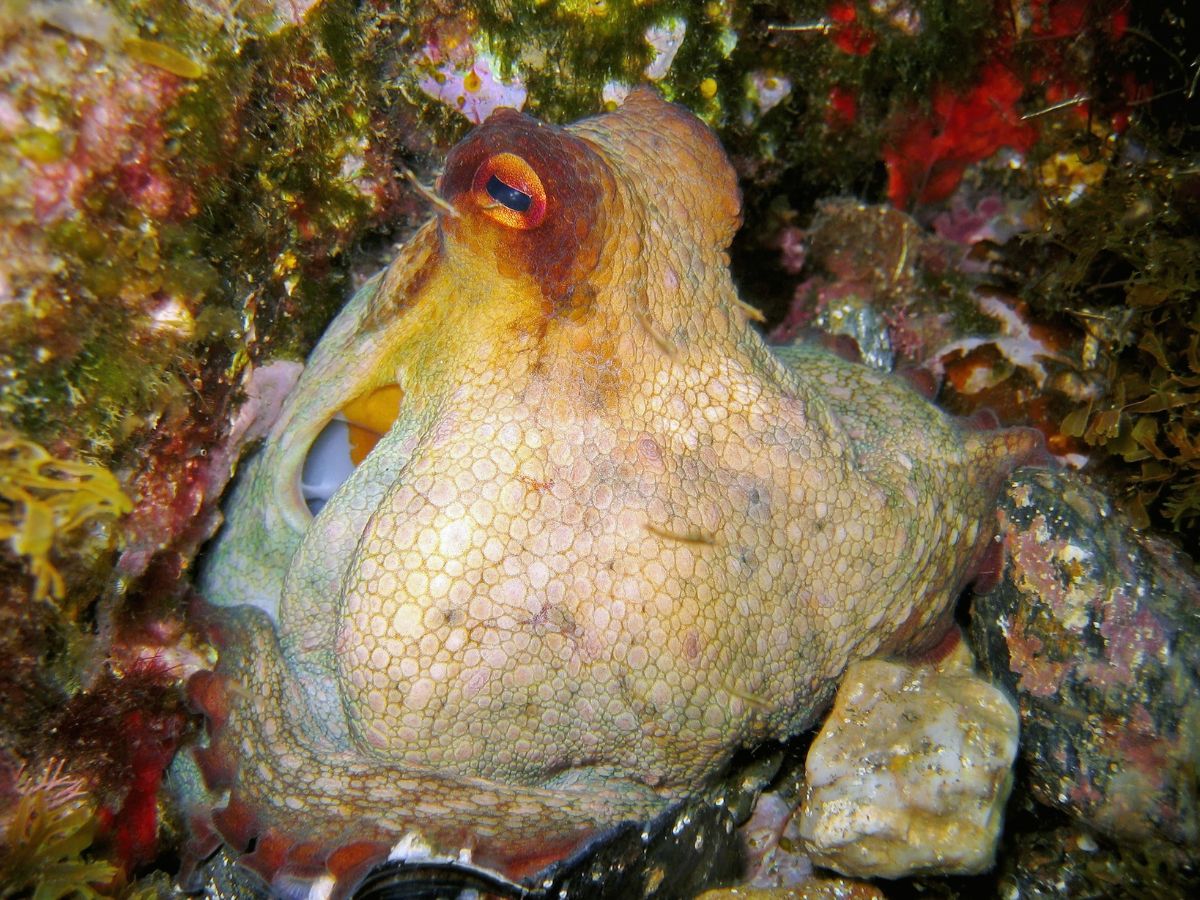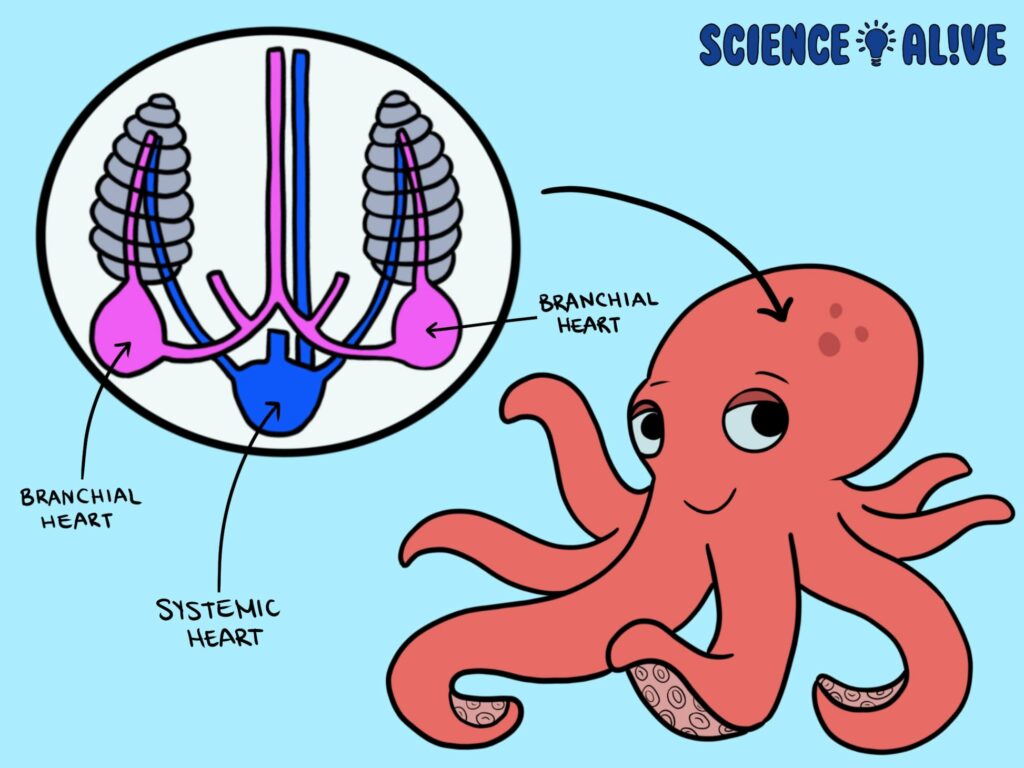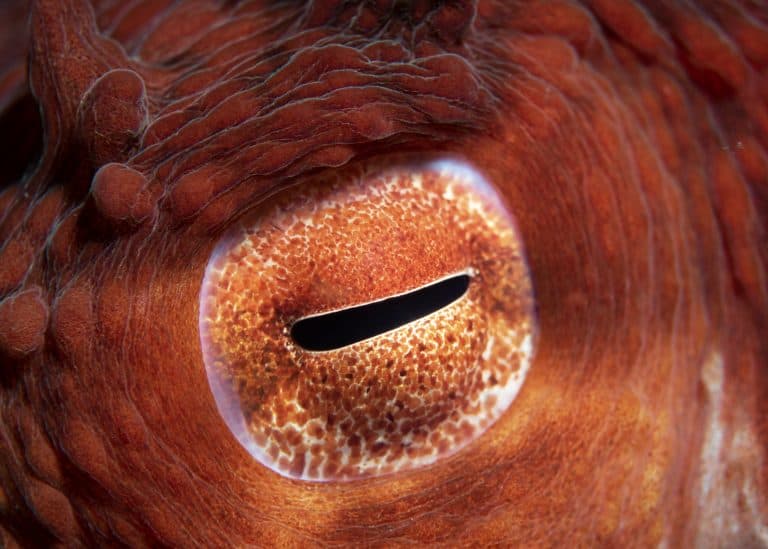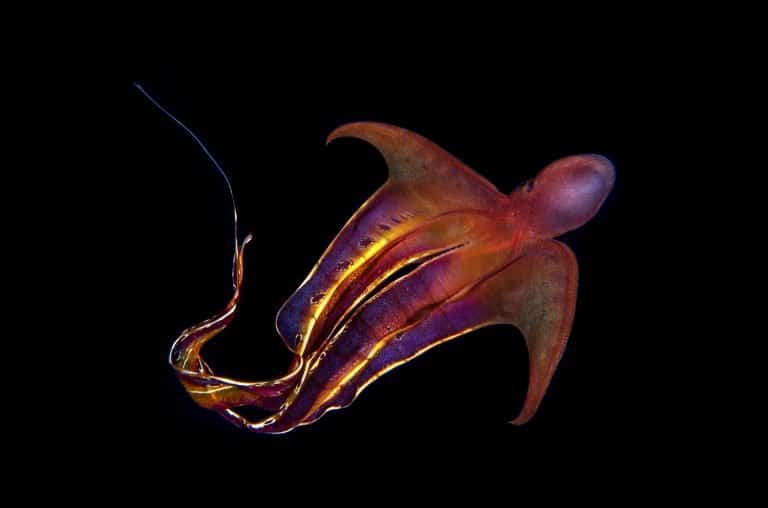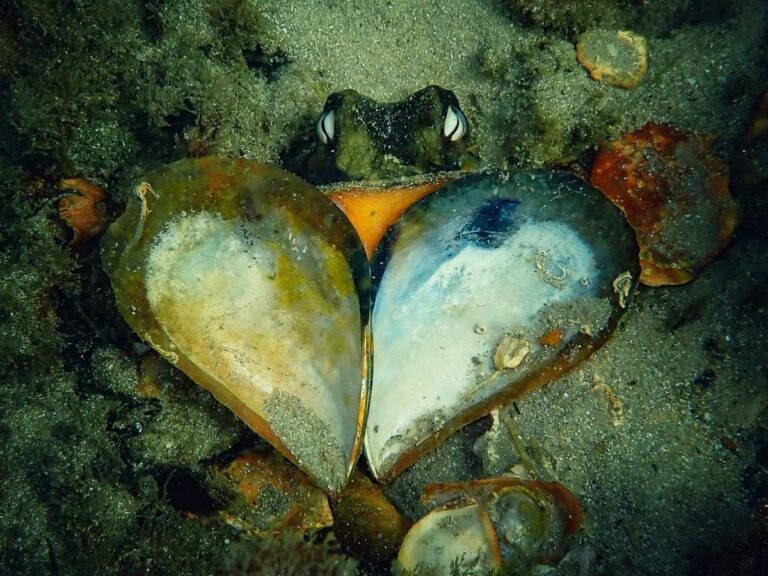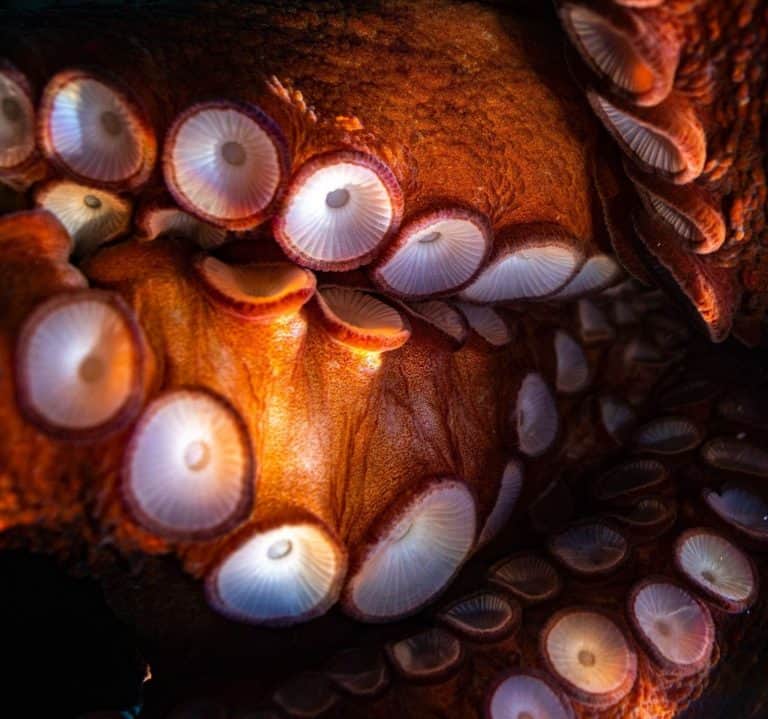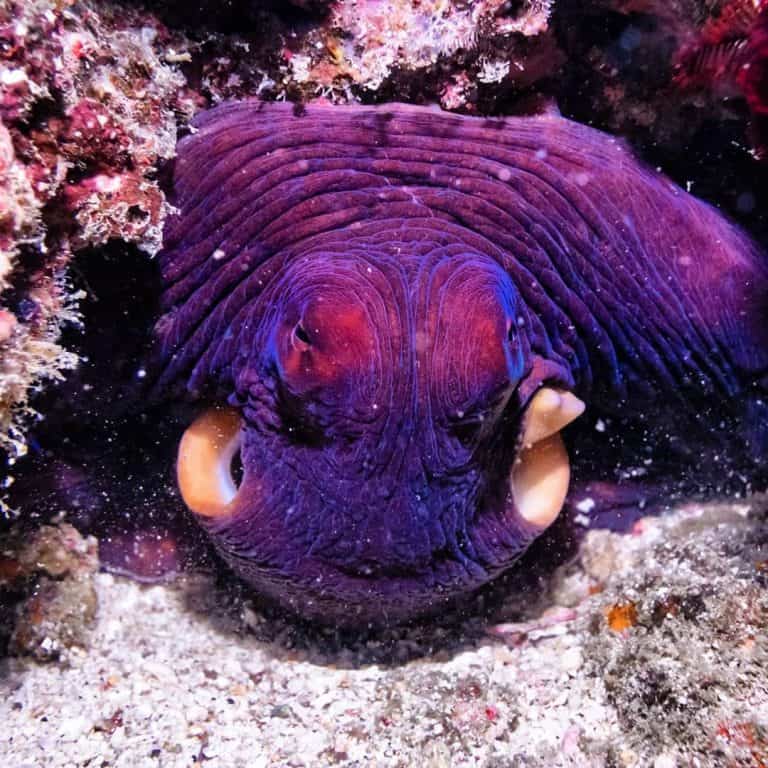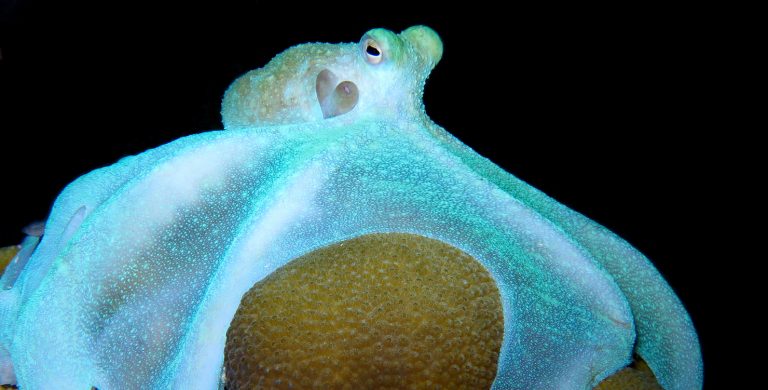How Do Octopuses Breathe?
Octopuses need oxygen to survive, just like humans, fish, and almost every other organism on Earth. But you may be wondering, how do octopuses breathe oxygen? Short answer: They have gills that extract dissolved oxygen from seawater. But it gets more interesting because they can also breathe THROUGH THEIR SKIN!
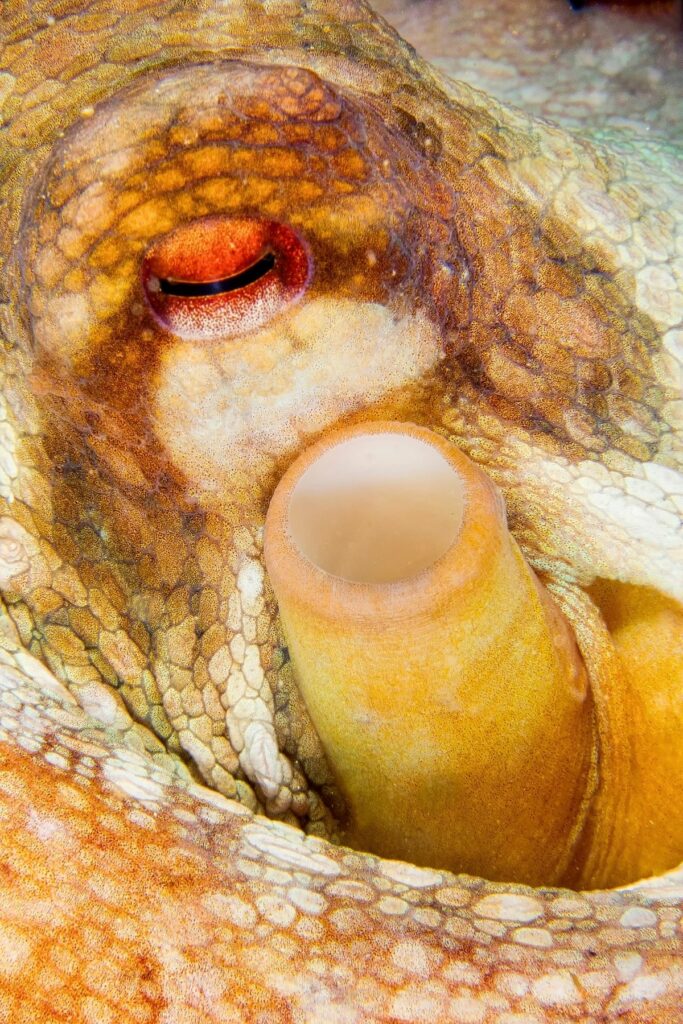
Gills and branchial hearts, better together
Octopuses “inhale” by sucking water into the mantle cavity. As the water flushes over their gills (located inside the mantle), little blood vessels called capillaries pull dissolved oxygen from the water and deliver it to the octopus’ body.
The octopus then “exhales” through its siphon—the same tube it uses to expel waste. When an octopus uses jet propulsion to make a quick escape, it basically takes a huge breath in through the mantle cavities and forcefully exhales through the siphon. Imagine letting go of an untied water balloon underwater…the muscular mantle forcefully contracts and blasts through the water.
Octopus gills or ctenidia (pronounced ti-knee-dee-uh) are comb-like and feathery looking. There are two of them, one on either side of an octopus’ mantle. And each gill has its own dedicated heart!
Octopus have three hearts – one main heart and two “helper” hearts called branchial hearts, which support their gills. Imagine your lungs having their own mini-hearts to help with breathing!
These branchial hearts pump “used” blood to the gills, where it picks up fresh oxygen from the water, like refilling a scuba tank. Then, the oxygen-rich blood goes to the main heart, which sends it to the rest of the octopus’s body. This fantastic teamwork helps octopuses stay active and energetic in their watery environment, where oxygen isn’t as abundant as it is in the air we breathe on land!
Long story short for cephalopod trivia, you now know that octopuses have THREE hearts: two branchial hearts that pump blood through the gills and a systemic heart that pumps blood throughout the rest of the body!
🐙 Octopus Fun Fact
All octopuses (and nearly every single living thing on Earth) need oxygen to survive, but scientists recently discovered an organism that DOESN’T! Research published in 2020 describes how a tiny parasite called Henneguya salminicola that infects the flesh of Chinook salmon has lost its genes for breathing.
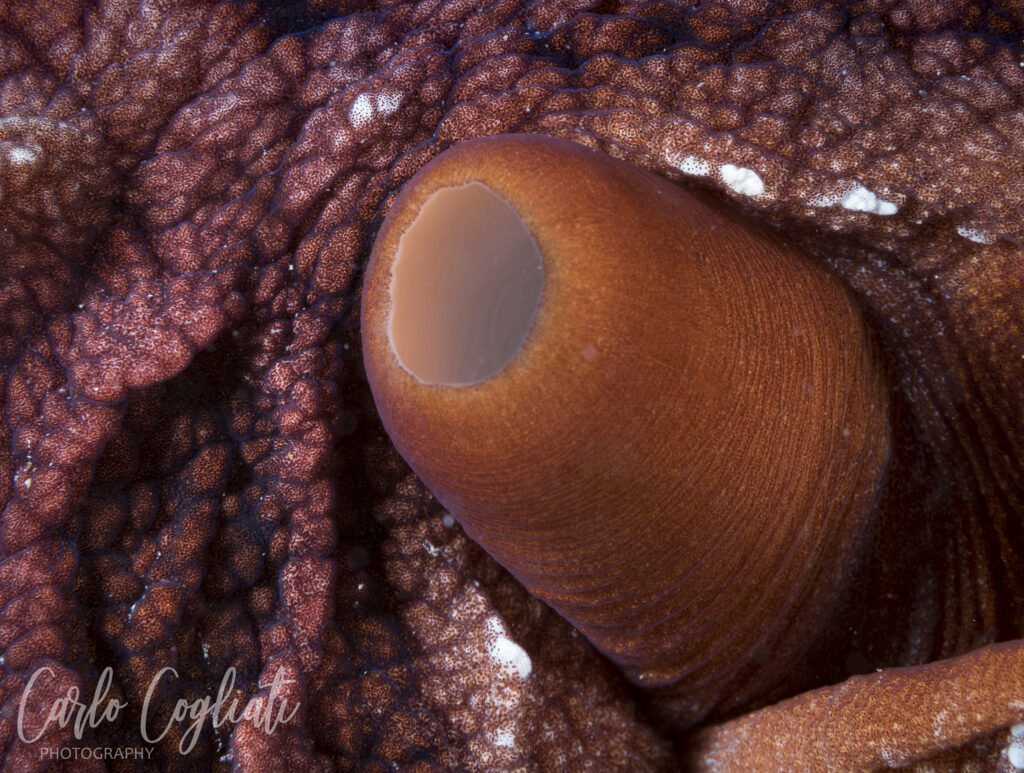
Bonus: Skin breathing!
If you’ve ever wondered what frogs and octopuses have in common, it’s cutaneous respiration, the ability to breathe through their skin. The oxygen that passes through the octopus’s skin gets picked up by blood vessels and transported throughout the body.
Carbon dioxide, a waste gas, exits right through the skin to complete this very important gas exchange!
Research focused on octopus skin breathing suggests skin breathing can make up anywhere from 3% to 41% of an octopus’s oxygen intake, depending on factors like how much of the octopus’ skin is exposed and how well it is ventilated.
🐙 Octopus Fun Fact
Some octopuses leave the ocean to hunt in tidepools or on land, and they can do this thanks to their ability to absorb oxygen through their skin. They can’t survive outside of water for long, though.
The recipe for octopus respiration?
The secret to octopus respiration is their gills (each paired with its own branchial heart!) and their multi-purpose, super-functional skin! Octopus skin exchanges gasses to facilitate “breathing”, and that’s pretty cool on its own, but it’s only part of the octopus-skin story.
Octopus skin can also change color and texture for communication and camouflage … and it can even see!
Note: If you enjoyed this post on how octopuses breathe, check out this one on octopus skin: The Fantastic Phore: Cephalopods Color-Changing Abilities!
If you want to educate yourself some more about all sorts of different cephalopods, take a look at our encyclopedia. Or, what we call it, our Octopedia!
Connect with other octopus lovers via the OctoNation Facebook group, OctopusFanClub.com! Make sure to follow us on Facebook and Instagram to keep up to date with the conservation, education, and ongoing research of cephalopods.
More FAQs To Read:
- Are Octopuses Dangerous?
- Which Direction Is The Front Of The Octopus
- Do Octopus Have Tongues?
- Does An Octopus Have Arms Or Tentacles?
- Is There Such Things As A Freshwater Octopus?

Bethanie Hestermann is a freelance writer and author of animal-science books, including Zoology for Kids and Marine Science for Kids. She is a contributing writer for OctoNation! You can find all her books at www.zoologyforkids.com/books.
